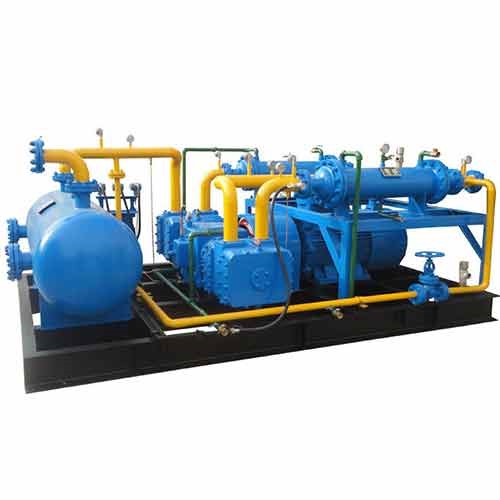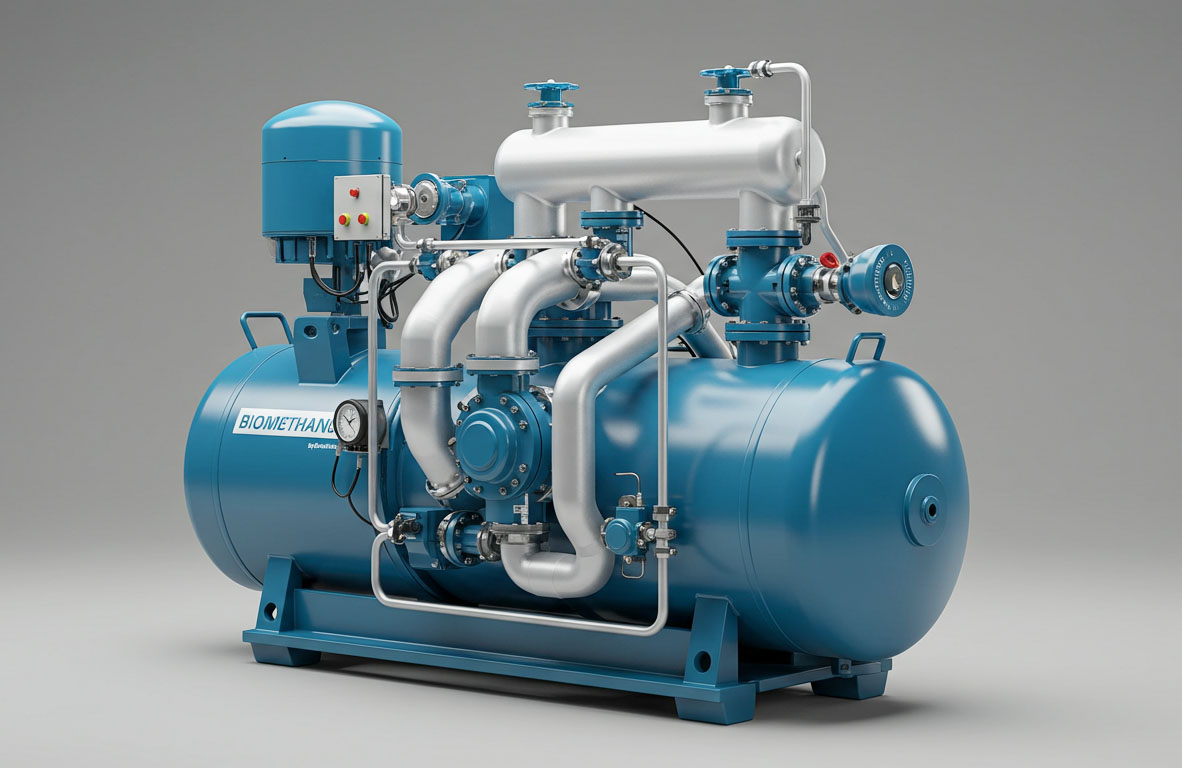LNG BOG Compressor: An In-Depth Overview
Introduction
In the world of liquefied natural gas LNG BOG COMPRESSOR, or Boil-Off Gas, is a crucial task. Understanding what BOG is, its formation mechanism, and its composition is essential for efficient LNG operations. This comprehensive guide will delve into the intricacies of LNG BOG and its compressor systems, shedding light on their importance, functionality, and applications.
Understanding BOG in LNG
BOG Formation Mechanism
To comprehend the significance of LNG BOG compressors, let’s start by looking at how BOG forms. When LNG is stored, it is subjected to varying temperatures. As a result, some of the LNG evaporates, creating BOG. This natural phenomenon occurs in LNG storage tanks and can significantly impact the overall LNG inventory.
Composition of BOG
BOG is primarily composed of methane gas, but it may contain traces of other hydrocarbons. The exact composition can vary depending on the LNG source and storage conditions. Understanding this composition is essential for effective BOG management.
Factors Influencing BOG Generation
Several factors influence the rate at which BOG is generated. Temperature fluctuations, LNG storage duration, and tank insulation all play a role. By comprehending these factors, LNG operators can implement strategies to minimize BOG formation.
Role of LNG BOG Compressor
Function and Significance
LNG BOG compressors are the unsung heroes of LNG facilities. Their primary function is to compress BOG back into the LNG storage tanks. This process helps maintain LNG inventory levels and prevents wastage. Without these compressors, BOG would be released into the atmosphere, leading to economic losses and environmental concerns.
Compression Process
The compression process involves taking low-pressure BOG and compressing it to match the pressure inside the LNG storage tanks. This requires specialized equipment designed to handle cryogenic temperatures and high-pressure conditions.
Types of LNG BOG Compressors
Various types of LNG BOG compressors are available, each with its unique features and applications. Reciprocating compressors, centrifugal compressors, and screw compressors are among the most common types used in LNG facilities. Selecting the right type depends on factors like capacity, efficiency, and maintenance requirements.
Applications of LNG BOG Compressors
Liquefied Natural Gas Storage Facilities
LNG storage facilities rely on BOG compressors to maintain LNG inventory levels. These compressors ensure that BOG is not wasted and can be converted back into LNG when needed.
LNG Transport and Shipping
LNG carriers equipped with BOG compressors can manage BOG generated during transportation. This ensures that LNG arrives at its destination in its liquefied state, ready for regasification.
Regasification Terminals
Regasification terminals receive LNG in its liquid form and convert it back into natural gas. BOG compressors are essential in this process to maintain pressure and prevent BOG loss.
Key Components of LNG BOG Compressors
Compressor Units
The heart of any LNG BOG compressor system is the compressor unit itself. These units are designed to handle extreme conditions and require precise engineering to ensure efficiency and reliability.
Cooling Systems
Cooling systems are crucial to maintain the low temperatures required for handling LNG and BOG. They play a vital role in the overall efficiency of the compression process.
Control and Safety Systems
To ensure safe and efficient operation, LNG BOG compressors are equipped with advanced control and safety systems. These systems monitor various parameters and can shut down the compressor in case of any issues.
Factors to Consider When Selecting an LNG BOG Compressor
Capacity and Pressure Requirements
The selection of an LNG BOG compressor should align with the specific capacity and pressure requirements of the facility. Oversized or undersized compressors can lead to inefficiencies and operational challenges.
Energy Efficiency
Energy efficiency is a critical consideration, as it directly impacts operating costs. Choosing energy-efficient compressors can result in substantial savings over time.
Maintenance Needs
Regular maintenance is essential to keep LNG BOG compressors running smoothly. Understanding the maintenance requirements and availability of spare parts is crucial for uninterrupted operation.
Environmental Considerations
Environmental responsibility is a growing concern in the LNG industry. Selecting compressors with low emissions and environmentally friendly features can align with sustainability goals.
Leading Manufacturers and Models of LNG BOG Compressors
Prominent Compressor Manufacturers
Several reputable manufacturers produce LNG BOG compressors, including Siemens, General Electric, and Burckhardt Compression. These companies offer a range of compressor options to suit different needs.
Highlighted Models and Their Features
Some notable LNG BOG compressor models include the Siemens BOG compressor with advanced control systems and the General Electric OptiComp™ series known for its energy-efficient design. Choosing the right model depends on the specific requirements of the LNG facility.
Case Studies
Real-World Applications of LNG BOG Compressors
To illustrate the practicality of LNG BOG compressors, we present real-world case studies. These examples showcase how LNG facilities have successfully integrated BOG compressors into their operations, leading to improved efficiency and reduced BOG losses.
Success Stories and Performance Enhancements
In these success stories, you’ll learn about the significant performance enhancements achieved through the use of LNG BOG compressors. These stories highlight the positive impact on both the economic and environmental aspects of LNG operations.
Future Trends in LNG BOG Compression
Innovations in BOG Compression Technology
The LNG industry is continually evolving, and so is the technology behind BOG compression. Stay informed about the latest innovations, such as improved compressor designs, enhanced control systems, and the use of renewable energy sources.
Sustainable Practices in Managing BOG
As sustainability becomes increasingly important, the LNG industry is exploring eco-friendly BOG management practices. Discover how LNG facilities are adopting sustainable approaches to minimize environmental impact.
Integration with LNG Industry Advancements
LNG BOG compressors are an integral part of the broader LNG industry. Explore how they fit into the larger landscape of LNG production, transportation, and distribution.
Conclusion
In conclusion, LNG BOG compressors are indispensable in the world of liquefied natural gas. They play a vital role in preventing BOG wastage, maintaining LNG inventory, and ensuring efficient operations.
For LNG operators and professionals, it is essential to explore and embrace BOG compression solutions. These technologies not only enhance operational efficiency but also contribute to a more sustainable LNG industry.
Looking ahead, LNG BOG compressors will continue to evolve, adapting to industry trends and sustainability goals. Their role in LNG operations will remain pivotal, making them a key focus of innovation and development in the LNG sector.


